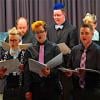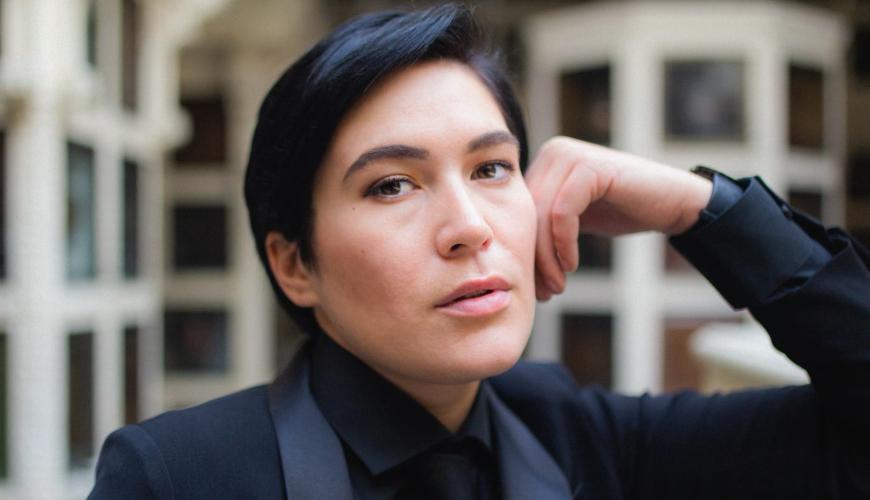
“I try to love [opera]. It doesn’t always love me back.”
Mezzo-soprano Nikola Printz sounded tired. Printz, who uses they/them pronouns, is trans nonbinary and one of a growing number of out trans singers whose visibility in the opera industry supports an expanding movement to embrace gender-expansive artists. They are in their first season with San Francisco Opera as an Adler Fellow, with multiple performances as Carmen under their belt and a busy upcoming season, all pointing to an exciting career in mainstream opera. This success has been hard-won and continues to be paid for with the discomfort of not being seen and understood, the daily mental gymnastics of presentation and deciding when and when not to speak up for themselves or other trans artists in the field.
While Printz acknowledges recent progress, “at the end of the day, it’s not enough to the point where I feel comfortable telling trans people it’s going to be OK,” they said. Trans opera singers face a variety of roadblocks in the industry, but a love for the art form keeps them pushing to find ways to make a career in opera sustainable, financially and personally. Through Printz’s jokes and delightful sass, you can hear the depth of their joy in the music. In their life, opera is “unfortunately … so terribly integral. Listen, if I could like any other music, or have any other job, I would.”
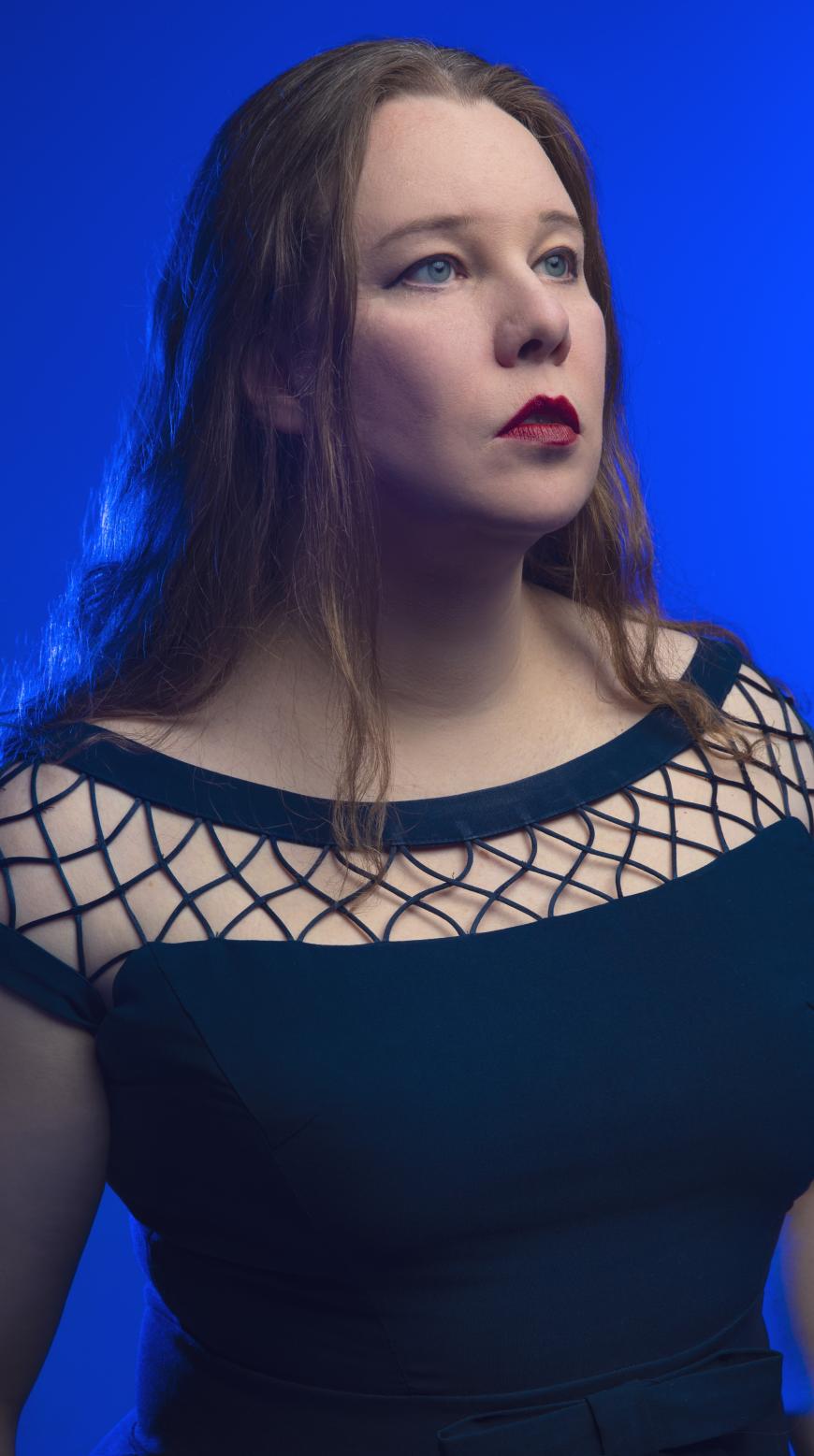
In recent years, there have been more and more productions that have invested in gender-expansive casting, though the majority of these have been from smaller companies and largely in the form of entirely new works. There have been few instances where trans singers break through and are truly artistically embraced by a large opera company, as was the case when Lucia Lucas was cast as the first woman to play Don Giovanni with Tulsa Opera in 2019. The character was reworked as “Don Giovanna,” the lecherous dyke, to much acclaim — allowing Lucas to shine as a singer and actress in the role.
SF Classical Voice spoke to some brilliant trans opera singers to hear their perspectives on the difficulties they have faced and their ideas for solutions. Each had their own strategies of coping, their owns plans, goals, and dreams for how opera could evolve, and their own suggestions for how the culture and structure of companies could change to make the art easier and more joyful for them and the next generation of singers.
For trans singers, portraying characters that do not align with their own gender is sometimes a problem and sometimes not. All of the singers I spoke to have a different relationship to the art of embodying characters. For singers like Katherine Goforth, the inaugural recipient of Washington National Opera’s True Voice Award, performing male characters, after a lifetime of performing “man,” has become untenable.
Finnish bass-baritone (or in her German neologism, feminine bassbaritonistin) Sam Taskinen has a very technical relationship with acting and enjoys playing men, women, and everything in between. She sees her 32 years living as a man as good research for playing the myriad male characters in her repertoire (a favorite being the bumbling, misled giant Fasolt in Das Rheingold). “Men are really fun to play now that [I] don’t have to pretend to be one in [my] own life,” Taskinen said.
There is a long history of playing with gender in opera, mostly in the form of “pants roles” for mezzo-sopranos following the decline of castrato roles in the early 1800s. Nonbinary singers like Printz and Canadian Teiya Kasahara are keenly in tune with the possibilities of interpretation in these kinds of parts, though opportunities to play them are relatively few, especially for Kasahara, who is usually cast in a higher voice type.
Printz said they don’t particularly experience dysphoria performing female roles because “I don’t get dysphoria from femininity or masculinity. I can get euphoria from either. Most consistently the bulk of euphoria I get is those at the same time. … I love a full face beat with a mustache, you know?”
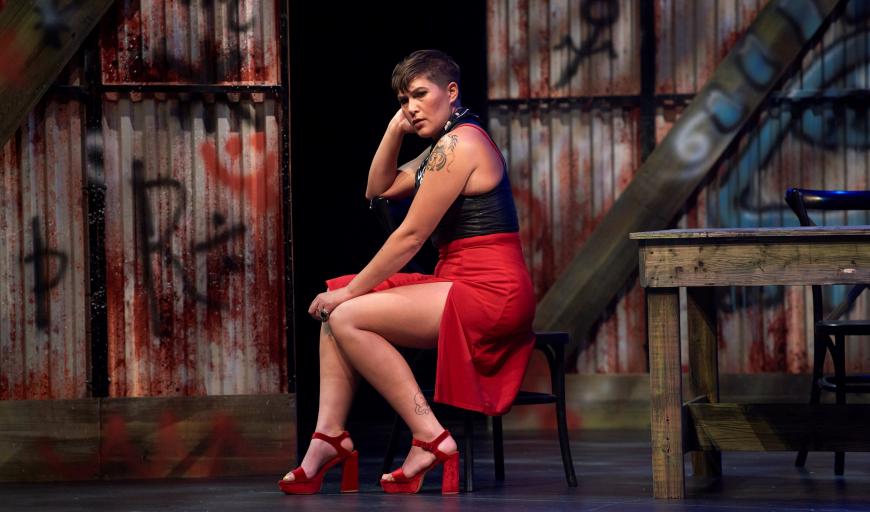
What becomes too heavy is depicting one gender in one limited way. The insidious and subtle gender expectations set by simply performing a classic female character bleeds into the rest of Kasahara’s professional life. “What I’m hired to do is so strictly feminine and female … and limited to a certain expression of femininity. … And that feels so coincided [with] who the industry expects me to be when I’m not onstage.”
For some singers, it is not so much the roles themselves that bring about dysphoria but their experiences in rehearsals, dressing rooms, and fittings —the day-to-day functioning of companies. Before lyric baritone Lucas Bouk went on testosterone and changed voice types, he felt trapped in an impossible position. Singing and acting was the one place that felt right and flowed, even if he was portraying women. But once the singing stopped onstage or in the rehearsal room, he often felt he had to dissociate from his body to make it through normal interactions. Bouk said hormone replacement therapy (HRT) did not seem like a viable option for him at that time. “I couldn’t imagine a future in which I could actually be comfortable onstage and offstage.” How can we expect performers to fully show up as artists and professional musicians if they are regularly having to ask themselves how much more of this they can tolerate?
There is a slowly crumbling myth that testosterone, taken for medical transition, will destroy a person’s singing voice. Kasahara, who is trans-masculine and uses they/them pronouns, admits that going on T has often been framed for them as a “one-way door.”
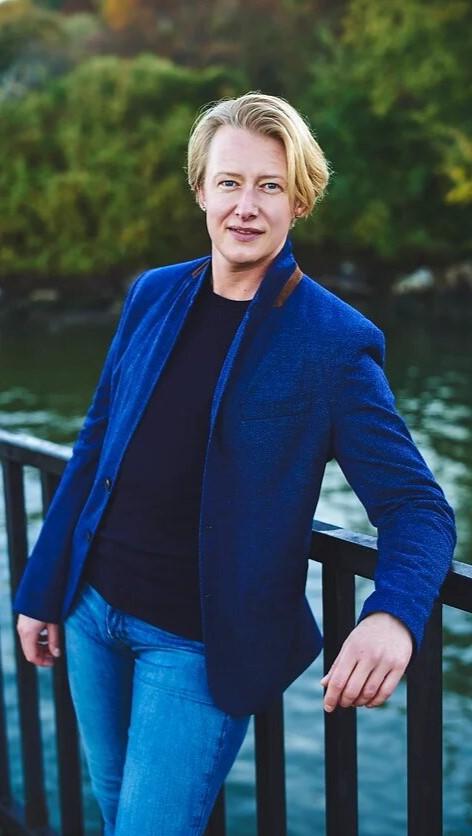
Bouk is one of a growing number of trans-masculine singers who have retrained as a different voice type after medical transition. For three years after coming out, he was convinced that he wouldn’t have the time to take off in order to retrain a changing voice and relegated HRT to some distant future. But when the world shut down in 2020, he suddenly had that time and made a leap of faith. Aided by a patron who had been following his 10-year career as a mezzo-soprano, Bouk was able to study extensively with two mentors as his voice changed. Supportive and flexible training allowed him to make his debut as a baritone five short months after his voice changed.
But it was a harrowing journey. At one time, Bouk had four functioning octaves. Two months later, he was down to one. But with infectious brightness, he explained, “I tried to keep a lighthearted, kind of curious approach to the whole thing as well. Because otherwise, if I sat and judged myself, I would have never moved forward.” Bouk recognizes that his return to work has been aided by a good professional reputation, as well as incredibly good fortune in being funded. He was the only one of the singers I spoke to who talked about how changes in medical insurance policies could make the careers of trans singers more viable — by completely covering vocal therapy as part of the HRT process.
There is an illusion of choice when it comes to what roles and projects trans artists get involved in. Everyone should have the artistic and personal agency to work in safe and supportive organizations and on projects that are stimulating. But there is simply not enough money, opportunities, or safety for trans and other marginalized artists to be selective about the gigs they take or audition for. When asked how coming out affected their professional choices, Printz said, “I wish I could say it made me a little bit pickier.”
“I spent the whole spring telling people that I don’t want to play male roles anymore,” said Goforth. “So no one hired me to play any male roles.” She had told me earlier this year that it was a hugely important step for her sense of self and her own agency to no longer portray male roles, but when I spoke with her again in the fall, she was somber. Goforth teaches voice at Reed College, but she has realized that to continue performing regularly, she has to make her own performances. This entails a mountain of unpaid work organizing events, applying for grants, and fundraising.
Though by no means an easy road, Taskinen’s transition has disrupted her career less, in part because of the scope of the opera industry in Germany, and Europe in general, compared to the United States. Germany is home to the most robust opera scene in the world, allowing for a greater diversity of programming and the development of new works. When asked how she supported herself, Taskinen replied, “Well, I mean, opera pays my bills.”
Taskinen is in her first season as a freelance soloist after singing as a studio member with the Komische Oper Berlin, and she has already been able to make more income. She was very fortunate to have had an accepting environment when she came out in 2021, and she acknowledges that her path has been made smoother by the visibility garnered through blood, sweat, and tears by Lucia Lucas. Though the two are different voice types, industry insiders know of Lucas, so they more quickly understand where Taskinen is coming from.
All the artists I spoke to live off a hybrid schedule of more traditional gigs with larger opera companies and orchestras and personal projects, some of which they spearhead themselves. Kasahara has created a series of acclaimed solo shows that often cut deep into problematic aspects of beloved canonical works, such as The Queen in Me, Little Mis(s)gender, and The Butterfly Project.
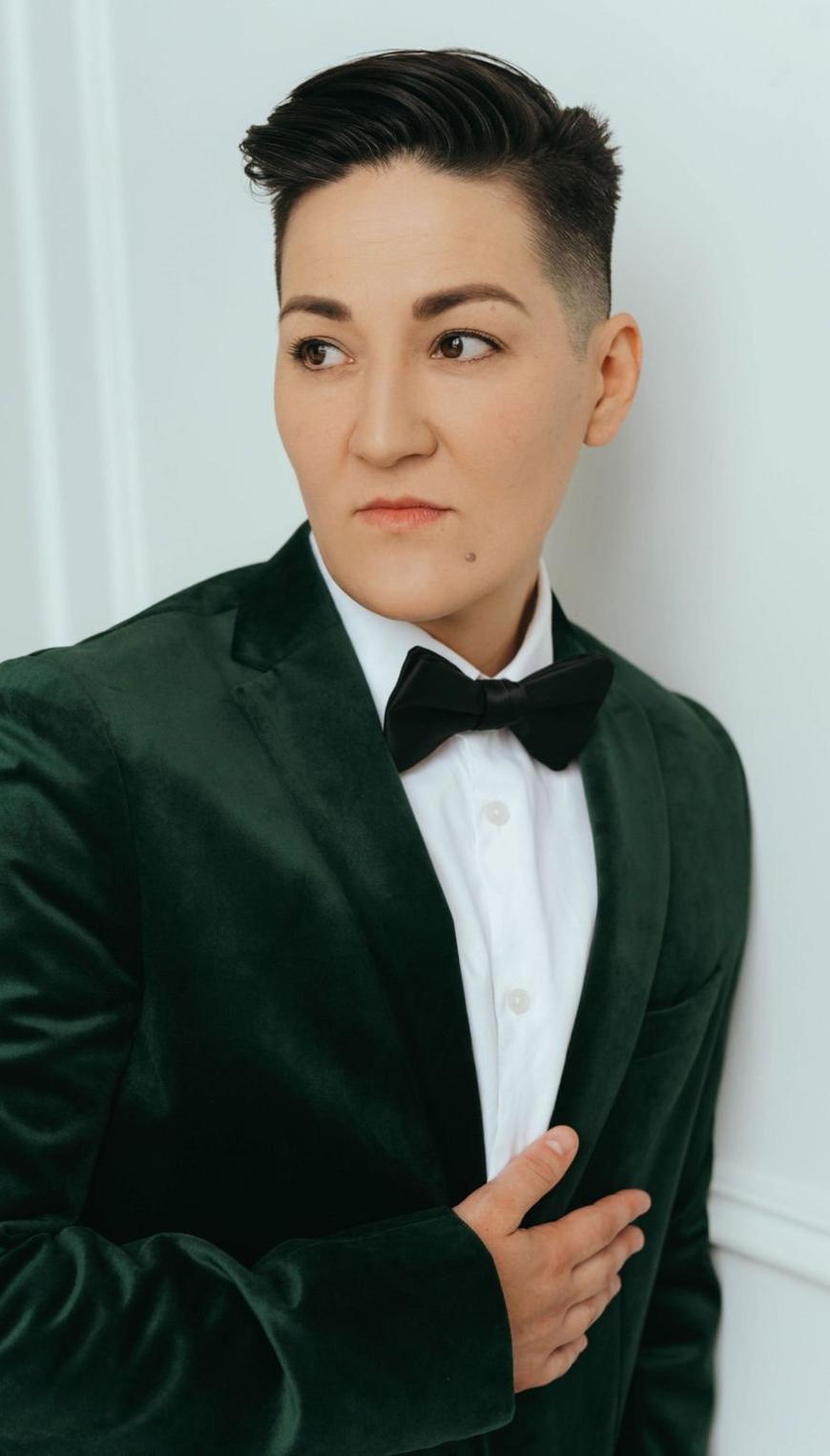
This back-and-forth between performing canonical roles and creating work in reaction to those roles, Kasahara explained, is “ how I feel I can reconcile my love for the canon and the repertoire — and the way that music viscerally makes me feel when it can exit out of my body — and also deal with all the innate racism, sexism, misogyny, homophobia, transphobia, and ableism that is just wrought within that music.” Even though this career path has been working for Kasahara in recent years, they are not sure how sustainable it is. They are looking forward to the time when they can create work that isn’t fueled by the process of coping with the weight that comes along with performing traditional roles.
For her True Voice Award recital in May 2024, Goforth is planning on presenting a program of octave-displaced arrangements of soprano arias, her goal being to simply show people what it would sound and look like to have someone with a lower voice embody roles like Mimi from La bohème and Susanna from The Marriage of Figaro. While this program will just be voice and piano, there is the fascinating question of how to reorchestrate a score to support a performance in a different octave.
But it takes money to hire people to make such modifications, and there’s risk involved in carrying out these kinds of experiments. Artists like Goforth know that the brunt of such work will fall to them. She’s already hard at work, having teamed up with Detroit-based Opera MODO, creating a directory of trans, nonbinary, and gender-diverse opera and classical voice professionals.
Jude O’Dell, who this year created the Jupiter Opera Development Foundation and uses he/they pronouns, works to get trans-inclusive projects produced. As a librettist, they have come up against arguments that audiences will have too hard a time relating to heavily queer and trans stories, only to see companies turn around and greenlight a project that teeters on tokenism. For all the history of hilarious and joyous queer performance in the form of drag, O’Dell laments that the stories that are produced often linger only on tragedy. “There’s no trans comedy out there. There’s no trans romance,” they said. “There’s a lot of self-hatred. It’s like [companies] don’t want the story unless it’s a coming-out narrative or a suicide narrative, or maybe an AIDS narrative if we’re going vintage.”

“But there’s so much more than that. And it just can’t get in the room. So it’s like we’re putting a pop-up tent outside the room,” O’Dell said about Jupiter. They’re hard at work putting together Jupiter Fest, an LGBTQ music festival next fall in Virginia, where, it so happens, both Taskinen and Bouk are slated to perform.
In the festival lineup is Frog, a rock operetta by Clover Nahabedian and O’Dell about a trans Frenchman in Queen Elizabeth I’s court, based on the historical figure Henri of Anjou. The role of Henri has been written for a “first-time tenor” — someone with a long background as a singer but who has not performed a chest-voice role before. The piece bridges the gap between “Pamina and Don Giovanni,” as O’Dell put it, and it’s exciting to see a bawdy trans comedy staged for a live audience.
Across the board, everyone I spoke with agreed that systemic change needs to take place to make trans artists and creators feel more fully welcomed and included in the future of opera. Because opera involves so many different disciplines, it follows that productions looking to tell stories that meaningfully include trans people should have representation on all levels. It’s easy for a single person to suffer under the weight of being “the only one” and to lose heart dealing with the pressure of representing an entire minority.
“I think I love opera so much I don’t want it to die,” Printz said sincerely. These trans performers are passionate artists that opera needs desperately — both to fuel ingenious interpretations and to give new life to this incredible art form.
In the end, arguments about audiences not relating to queer and trans characters fall flat. As O’Dell put it: “I truly believe that the world — queer, straight, cis, trans — has an appetite for good stories told well, and it doesn’t really matter if it’s a trans story or a Black story or whatever. [Writing] a good story, [telling it] well, is all you really need.”




